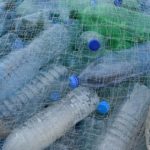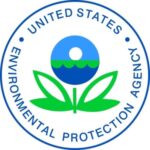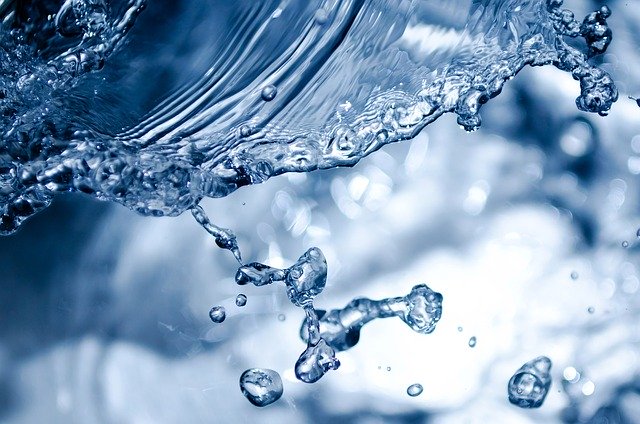Bali’s Beaches Are Riddled With Pollution – Here’s Why 🏖️
Energy Disrupter
Bali Beach Pollution 🏖️: Bali is well-known for its stunning beaches and crystal clear waters, but not a lot of people know that it has become increasingly polluted in recent years, especially with the Indonesian island opening borders post-COVID. With tourists flocking to this Indonesian paradise by the thousands daily, Bali constantly faces a huge environmental crisis, and we will talk about why in this blog. Let’s take a closer look at why Bali’s beloved beaches struggle with pollution.
A couple of months ago, news.com.au reported that Australian tourists saw pictures of Bali’s beaches covered in plastic debris, which left them ‘shocked and disturbed’. According to the news, a Sydney woman shared some pictures online that showed the renowned Legian beach riddled with rubbish.
The once picturesque sand is now obscured by a layer of plastic waste, leading some to refer to Bali‘s summer as “garbage season”.
Bali saw some improvements for a couple of years following the lockdown brought about by the COVID-19 virus. But last year, their borders finally opened and saw an influx of (mainly Australian) tourists going there, only to see the beautiful beaches of Bali riddled with rubbish and murky water.
>Download Now: Free PDF Business Owners Guide To General Waste Bin Services
Even with how recently these pieces of news were released, Bali beaches’ pollution problem is not something new and came out of the blue. It has long been a problem that the small Indonesian island of Bali has to continuously deal with. The question is, why do Bali beaches have a lingering waste problem? Is there any particular reason for this?
Below, we will cover more on what causes the pollution problems that a Bali beach experiences. So, continue reading to learn more.
Bali beach pollution: what seems to be the problem?
Before we go any further to discuss Bali’s polluted beaches, we want to emphasise the detrimental effect plastic waste has on the environment.
As we mentioned on our blog about converting plastic waste to fuel, we produce around 400 million tonnes of plastic every year. Unfortunately, we only recycle less than 10 per cent of it. In addition, a whopping 85 per cent of plastic waste still ends up in landfill.
Also, add that to the fact that plastics do not go away for a really long time (plastics can last centuries at the minimum), and we have ourselves a problem that seems out of reach to solve. Solving this problem seems nigh impossible.
A majority of the world’s plastic waste tends to end up on coastlines. Bali’s beaches, unfortunately, are recipients of all kinds of waste, therefore making it a place prone to pollution. There has to be a reason why right? Of course, there is!
The problems
First off on Bali beach pollution problems, we consider Indonesia a ‘developing’ nation. The term developing nation pertains to a country having a lower average income than those dubbed as industrial nations (i.e., highly-developed countries). To make things easier to understand, industrial nations are more well-off than those considered developing.
For instance, industrial nations such as the US, and even Australia, which produce millions of tonnes of plastic waste all year long, have the luxury of ignoring this issue because they have some of the most advanced recycling facilities available, along with a working waste management system, to keep plastic in check in their respective countries.
Bali, however, is just a small island situated just to the right of Java, one of the 5 largest islands in Indonesia, a country considered a developing nation. As Bali, Indonesia has a small population of just around 4 million, maintaining cleanliness can become quite a bit of a difficult task, especially with over five million foreign tourists and eight million domestic visitors annually. With more than 13 million annual visitors annually, this little island with a small population will have a difficult time managing all the rubbish making its way into beaches, streets, rivers and other places.
Another Bali beach pollution problem
Another reason why each beach in Bali beach has a pollution problem is because of the yearly strong winds that hit each beach of Bali, bringing in tonnes of plastic pollution. Excerpts from the report mention that:
“In an annual phenomenon, plastic waste, garbage, and waste from shipping vessels will be carried into land by strong winds, high tides, and driving rains.
“Usually, the accumulation of shipping waste and ocean plastic hits Kuta Beach in November, which is poor timing.
“Looking at the waste that has washed up, there is everything from plastic waste, fishing gear, and foamy polluted water, then coming from inland downstream towards the ocean, teams find tree branches, leaf litter, and more plastic waste that has found its way into Bali’s rivers and waterways.
Cleaning efforts by the Indonesian/Bali Government
The Indonesian Ministry of Tourism recognises the Bali beach pollution problem and currently does anything in its power into setting up supporting projects in Bali to transition to a more sustainable and “greener tourism,” as well as to recognize and encourage company owners to accept responsibility, according to Bali.com.
Their governor issued a ban on single-use plastic in December 2018 with a six-month implementation window to give businesses time to prepare. Straws, plastic bags, and the iconic Styrofoam were all banned when the rule was ultimately put into place. The pandemic put this at a temporary halt as single-use plastics were needed for hygiene, safety, and health reasons. But now that the pandemic’s height has passed, the Indonesian government has once again made it their top priority to ban single-use plastics by the end of 2022 to this current year of 2023.
Let us see what happens next to these beautiful Bali beaches in the future.
Contact Waster right now for your waste and recycling needs now!
Does your Australian-based business need waste and recycling services? If so, then you have come to the right website!
Please call 1300 WASTER (1300 927 837). You can also email us at [email protected] or [email protected] if you have further questions. Find the best deals in terms of waste and recycling pricing and services!














